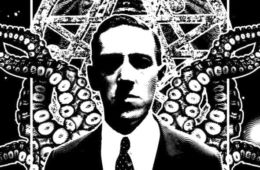Can foreign DNA control your soul? — Part 2
While our physical traits are more or less predetermined by DNA, it is the genes within which are responsible for the development of particular traits. This has been a consistent finding in the field of epigenetics.
A recent article in the Conversation sums up epigenetics pretty well in layman-friendly terms:
Epigenetics refers to shifts in gene expression that occur without changes to the DNA sequence. Some epigenetic changes are an aspect of cell function, such as those associated with ageing. However, environmental factors also affect the functions of genes, meaning people’s behaviours affect their genetics. For instance, identical twins develop from a single fertilised egg, and as a result, they share the same genetic makeup. However, as the twins age, their appearances may differ due to distinct environmental exposures.
Epigenetic modifications are influenced by environmental factors, pharmaceutical and nutritional elements, lifestyle, and developmental stages. They play crucial roles in normal development, cellular differentiation, and disease processes. For instance, epigenetic changes can affect cancer progression, metabolic disorders, and neurodegenerative diseases. Unlike genetic mutations, epigenetic modifications are often reversible, making them a significant area of interest for therapeutic interventions. Understanding epigenetics provides insights into how genes and environment interact to shape health and disease outcomes across generations.
Epigenetic studies on identical twins have also effectively demolished the “gay gene” theory. It was discovered that the adoption of a homosexual lifestyle by one identical twin is rarely replicated in the genetically-identical kin. The argument that “I was born this way” is therefore based on politically-dictated fraudulent science.
While the field of epigenetics is vast and often poorly understood, I will focus on three elements which can activate novel gene expressions in the human body.
Transfused Blood
According to geneticist and evolutionary biologist Richard Lewontin (1929-2021), blood is subject to the same heredity rules as human organs.
Nearly 120 million units of blood are donated globally every year, with 25 million units transfused in Europe alone. They have become a ubiquitous life-saving medical procedure which, in turn, could be the reason why relatively few studies have focused on the psychological impacts of blood transfusion.
Yet, there are blood transfusion recipients who have reported changes in their mood, behaviour and even memories after undergoing the procedure. In a 2017 study coordinated out of the University of Geneva, six out of seven study participants “acknowledged the possibility that transfusions might induce changes in behavior or values…. Three subjects clearly stated that they would refuse to receive blood from a criminal for fear that some negative characteristic may be transmitted to them. Furthermore, three subjects acknowledged that their transfusion might have changed their own behavior or values.”
One study participant claimed that his sleep was marked by a rise in the number of dreams post-transfusion while another claimed that his sense of taste had changed. The latter found it worrying, saying: “I hope that the donor’s blood cannot take over.” One of the patients reported that “he felt happier and stronger” post-transfusion.
The authors of the study admitted that “further research in a larger population is warranted to evaluate the incidence of a perceived change in behavior or values after a blood transfusion”.
There is a growing perception that donor memories may be stored as “chemical codes” inside transfused blood.
Donor traits may be transferred to blood transfusion recipients in a manner paralleling the organ transplantation process.
In a world gripped by constant pandemic fearmongering, there is growing circumspection over transfused blood from donors who had received the Covid-19 and other novel vaccines. The vaccinated blood may act as an epigenetic bioreactor for a multiplicity of adverse events associated with Covid-19 vaccines.
The genetic makeup of transfused blood never changes as it remains that of the donor. The recipient’s body will gradually remove and replace the donor’s cells with its own, maintaining the recipient’s genetic identity. But what happens when tainted blood acts as an epigenetic bioreactor during the replenishment period? What happens when spike proteins are transferred into the recipient body? And what happens when donor bloods are biotechnologically tainted by CRISPR-Cas9 tools? These uncomfortable questions are rarely answered in an era of manufactured pandemics.
The ancient world however had viewed blood as the inviolable life force of a person or creature. The consumption of blood was prohibited in the Bible and it remains one of only three Jewish dietary laws that are applicable to Christians (Acts 15:29).
“Only be sure that you do not eat the blood, for the blood is the life, and you shall not eat the life with the flesh.” (Deuteronomy 12:23).
“For the life of a creature is in the blood… it is the blood that makes atonement for one’s life.” (Leviticus 17:11).
The first recorded murder in the Bible — that of Cain slaying his brother Abel — has an intriguing reference to blood.
“What have you done? The voice of your brother’s blood is crying out to Me from the ground. (Genesis 4:10).
What an otherwise odd statement! Does blood carry the “voice” of an aggrieved soul, even after death?
To read the rest of the article, kindly click on this link
Dr Mathew Maavak specialises in systems science, global risks, strategic foresight, geopolitics and governance. He has published numerous Op-Eds on a variety of eclectic subjects for over 20 years – by ‘connecting the dots’ in a disjointed world. Subscribe to his Substack
Become a Patron!
Or support us at SubscribeStar
Donate cryptocurrency HERE
Subscribe to Activist Post for truth, peace, and freedom news. Follow us on SoMee, Telegram, HIVE, Minds, MeWe, Twitter – X, Gab, and What Really Happened.
Provide, Protect and Profit from what’s coming! Get a free issue of Counter Markets today.



